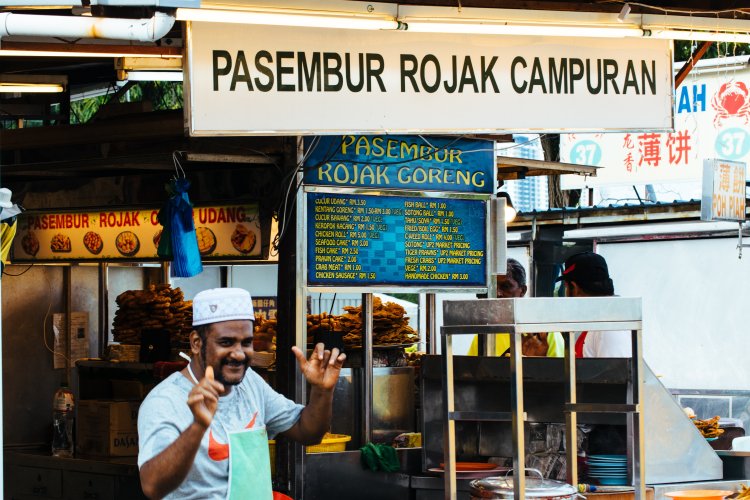Recently, many news portals reported that our Malaysian Prime Minister encourages his Ministers to speak Bahasa Malaysia in all official conferences, and engagements abroad. Some applauded his directive as being proud to be proficient in our mother tongue but some felt whether it is appropriate or necessary?
When I first read our prime minister’s directive, the first thing that appeared on my mind was, why?
With mixed feelings on this, I started to evaluate whether speaking in Bahasa Malaysia makes us more Malaysian or patriotic?
I usually don’t declare myself patriotic, but I think I am *lol* at times. But should we be proud that we can speak Bahasa Malaysia, our national language?
I have attended meetings, conferences, and workshops overseas many times throughout my career. Fortunately or unfortunately most times I was the only representative from Malaysia. Being there alone, and representing Malaysia, we have no choice to present ourselves professionally, trying to speak English fluently as we are surrounded by many professionals who speak English eloquently from other regions. It is normal, understandable, and acceptable if you are from China, Japan, Korea, or Thai with a lower proficiency level as English is not their core language. However, being Malaysian, many people from other regions have different perceptions and expectations of us as many already assume that we can speak and articulate in English naturally.
For consumption purposes, Malaysia’s English proficiency level ranked 30th placing globally with a score of 547 while Singapore ranked 10th and the Philippines at 27th placing. I extracted this report from Human Resources Online.
Therefore, having been surrounded by many people from every part of the world, you will feel proud and you’re included in many conversations at ease with an international language. However, I do see many of my peers who are unable to participate in some activities or conversations as they struggle to comprehend the language. Usually, when someone struggles in their proficiency, we tend to help by including them as much as possible in the conversation. In these instances, we use English as the common language.
However, there were once, a few of us were attending a workshop in the US. Each day after the workshop, we hitch a ride in a 9-seaters van with other colleagues from other regions back to our hotel. One day, our Romanians colleagues were chatting amongst themselves in Romanian, actually most days. My Malaysian Indian colleague and I were in the back seat started to envy them for chatting among themselves in their mother tongue. At that spur moment, both of us stare at each other and we spontaneously spoke Bahasa Malaysia to each other that instant. We continue our conversations in Bahasa throughout the ride back to the hotel with full of laughter. At that moment, I am sure my colleague and I never felt so proud of knowing we have our own identity and a common language that is Bahasa Malaysia then.
So should we be proud of our National language?
I must admit that my fluency in Bahasa Malaysia is at an acceptable level, nevertheless, I am proud to be able to articulate that language besides English and other local dialects. I am sure you will join me in being proud
- when we stand at the podium with the ability to speak both Bahasa Malaysia and English fluently
- when we stand in awe that we have our national language and identity
- when we have a national language that can unite all Malaysians from all backgrounds, regardless of beliefs, age, and race.
- when we standing in awe in front of many audiences around the world that you have a national language representing different backgrounds, identities in a multi-cultured, ethnics, and ideologies.
- when you can speak a minimum of 2 to 3 major languages excluding individual ethnics and their local and native dialects
- when you came from multi-racial countries with different cultures but with a common language, the Bahasa Malaysia
- when we can easily communicate, understand each other in any eateries, or market with mixes of lingo with Bahasa Malaysia
- we have the opportunity to learn other languages in school besides Bahasa Malaysia
- when your foreign friends and colleagues tried to use Bahasa Malaysia when they are here in Malaysia
I am sure we have more to be proud of but the fact is we have to accept that primarily English, Mandarin or even Spanish are widely spoken languages for businesses around the world. Hence, the ability to be proficient in English or even Mandarin or any other international language will add advantages to any international event but this doesn’t mean that we lose our identity for being Malaysian even we don’t speak Bahasa Malaysia in that particular international event. We are still proud of being Malaysian with our own Bahasa Malaysia as our primary language.
Regardless, Malaysia is a diverse country with a different identity, ethnic group, culture, and traditions. Malaysia celebrates many events, festivities, and customaries festivals. Malaysia has many national resources, with vast languages proficiencies, skills able to cater to both downstream and upstream jobs and works. Malaysia Truly Asia! Come to think of it, I miss that song that used to play in our national carrier and airport. Nevertheless, we still have the song “Ali, Ah Kau dan Muthu Bersama..”to remind us we are truly Malaysian.
















